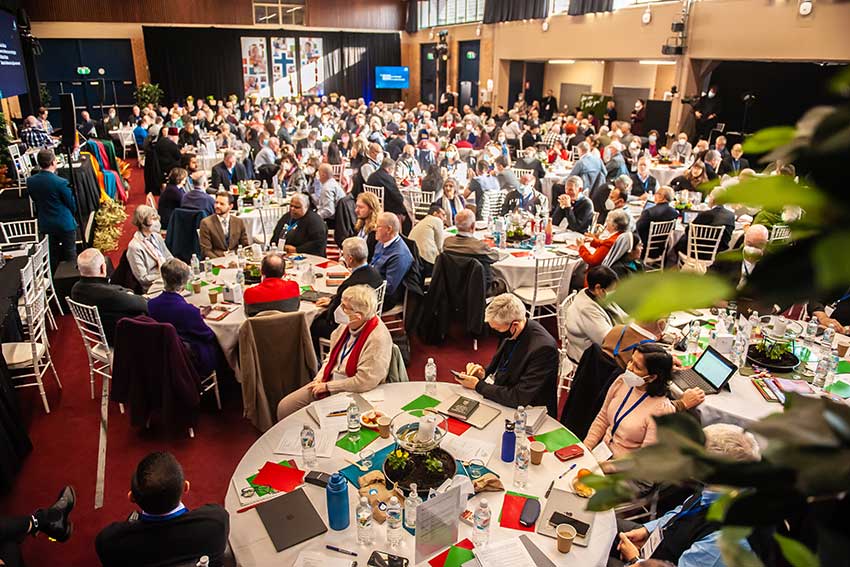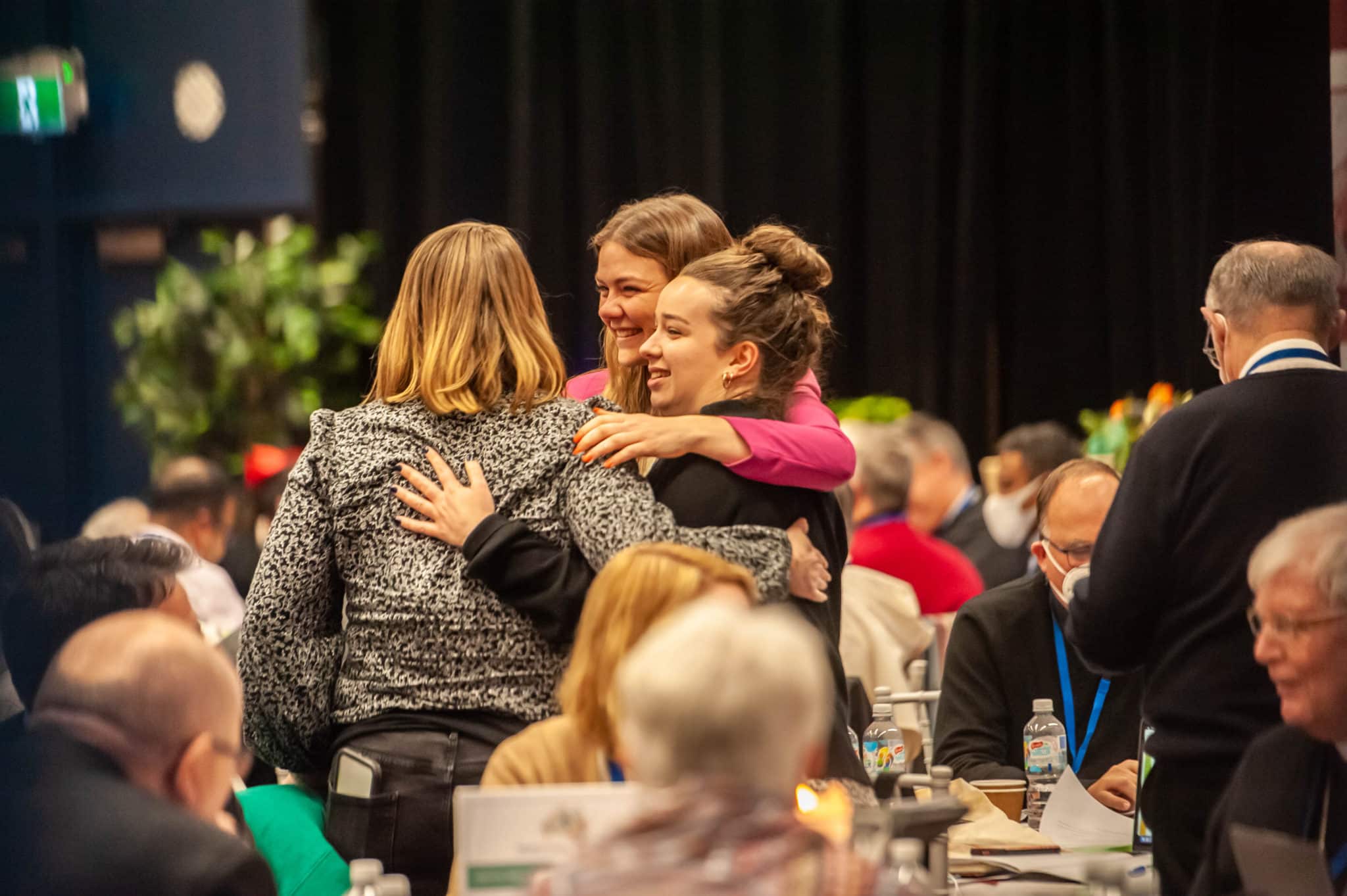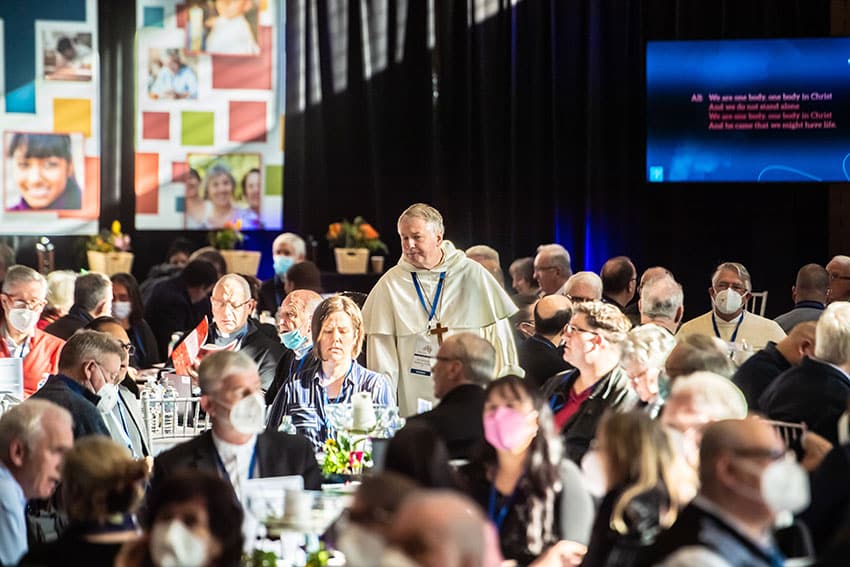
The Fifth Plenary Council of Australia was a new experience for Catholics in many ways, said Archbishop Timothy Costelloe SDB, lived in a “tentative and incomplete fashion” as they tried to “re-imagine the Church in Australia through a missionary lens”.
“We have tried, and at times struggled, and perhaps occasionally failed, to listen carefully to each other,” said the Council president and principal celebrant in his homily at the closing Mass of the second assembly in St Mary’s Cathedral, Sydney, on 9 July.
“The Lord never promised that discipleship would be without its challenges.”
“The diversity and richness, tensions, tears, hopes and joys of the Catholic Church in Australia were on display at the week-long assembly in Sydney.”
Nevertheless, “We have made some decisions, opened up some possibilities, and experienced the depth and complexity of some of the challenges we face.”
Much work remains to be done, he added.
The diversity and richness, tensions, tears, hopes and joys of the Catholic Church in Australia were on display at the week-long assembly in Sydney, particularly last Wednesday July 6 which saw a disruption in the painstakingly-planned schedule.
It erupted after two motions pertaining to the equal dignity of men and women in the Church did not pass.

At issue was the assembly process itself, along with questions over women’s participation in the Church’s life and ways in which women are recognised, or not recognised, as they seek to fulfil their mission as baptised Catholics.
With support from the steering committee, a four-person writing group presented five revised motions to the assembly, which were all passed on 8 July.
On 9 July Plenary Council members approved a concluding statement signed by all members of the assembly, which reflected on the discernment that took place over the week.
“The Holy Spirit has been both comforter and disrupter. Throughout the assembly, diverse views and approaches were named, occasionally appearing to be irreconcilable.”
“Some moments of this second assembly have been calm and harmonious, others tense and difficult,” the statement said.
“But every moment has been blessed; the entire week has been grace-filled, though never a cheap grace. The Holy Spirit has been both comforter and disrupter. Throughout the assembly, diverse views and approaches were named, occasionally appearing to be irreconcilable.
“At a pivotal juncture in the assembly, some of these differences helped move the Council from having a process to being-in process; from following an agenda to following the Holy Spirit into the unknown.”
Members also confirmed the decrees of the Fifth Plenary Council of Australia, which were then signed by all bishops present.

After the November meeting of the Australian Catholic Bishops Conference the decrees will be sent to the Holy See for review. If affirmed, they will be implemented and become the law of the Church in Australia six months later.
The four-year process involved 277 members from around the country comprising clergy, religious and lay women and men, as well as support staff, volunteers, theological advisers and thousands of Catholics who made submissions responding to the question of what God is asking of the Church in Australia at this present time.
About 30 motions were considered and voted upon at the week-long assembly to develop the Plenary Council’s proposed decrees in what has been described as a defining moment for the Church in Australia.
“A call for the defence of human life from conception to natural death, ‘especially those who are most vulnerable, and to care for all forms of life on Earth’.”
They include:
- Apologies and commitments to Indigenous and Torres Strait Islander people and those harmed by sexual abuse of children in Church settings
- Initiatives relating to governance, liturgy, the environment, education, social justice and Catholic social teaching, faith formation and mission
- Commitments to foster a culture of synodality
- Should the universal law of the Church be changed to authorise the diaconate for women, a recommendation that the bishops examine how best to implement it in Australia
- A call for the defence of human life from conception to natural death, “especially those who are most vulnerable, and to care for all forms of life on Earth”
- A request for a new English translation of the Roman Missal “that is both faithful to the original text and sensitive to the call for language that communicates clearly and includes all in the assembly”
- A request that Pope Francis approve a wider use of the Third Rite of the Sacrament of Penance
A motion in favour of laity preaching at Mass was not passed, and so will not be included in the proposed decrees presented to the Pope.
